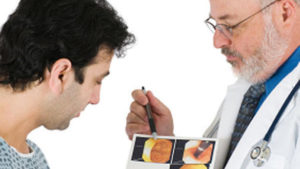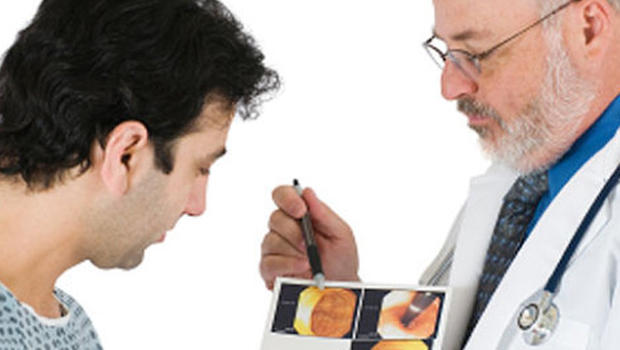 Colon cancer is often thought of as an “old person’s” cancer. After all, the official screening doesn’t begin until 50 years old, and then again every ten years after that. Let’s also add that the median age of diagnosis is 69 years old. Reality is, old person’s cancer or not, colon cancer is the second leading cause of cancer death among men and women in the United States. Colon cancer screening has emerged as the biggest measure of prevention, causing a 30% decrease in colon cancer incidents in the United States, according to the American Cancer Society. As encouraging as that statistic is colon cancer is actually on the rise in those individuals under 50 because screenings aren’t being done until age 50. The first step researchers and gastroenterologists must take is to pose the question “Why is this happening?” From there, a solution can be reached. We here at GANJ have come up with preventative tips for those under the age of 50:
Colon cancer is often thought of as an “old person’s” cancer. After all, the official screening doesn’t begin until 50 years old, and then again every ten years after that. Let’s also add that the median age of diagnosis is 69 years old. Reality is, old person’s cancer or not, colon cancer is the second leading cause of cancer death among men and women in the United States. Colon cancer screening has emerged as the biggest measure of prevention, causing a 30% decrease in colon cancer incidents in the United States, according to the American Cancer Society. As encouraging as that statistic is colon cancer is actually on the rise in those individuals under 50 because screenings aren’t being done until age 50. The first step researchers and gastroenterologists must take is to pose the question “Why is this happening?” From there, a solution can be reached. We here at GANJ have come up with preventative tips for those under the age of 50:
Age to Begin Colon Cancer Screenings*:
- If you have a family history of polyps or colon cancer, you may need to be screened as soon as possible.
- If you have certain conditions or diseases such as Crohn’s Disease of Ulcerative Colitis, you may need to be screened sooner
- African Americans should begin at age 45
- Healthy individuals should begin screening at age 50.
*This is a crucial and important question that can be individual-specific, and should be brought up to your gastroenterologist
Know the symptoms
As we proved above, colon cancer is prevalent in individuals under the age of 50. One reason researchers believe there is a growing number of diagnosis between the younger crowd is that they simply don’t know the symptoms:
- A change in your bowel habits, including diarrhea or constipation or a change in the consistency of your stool
- Rectal bleeding or blood in your stool
- Abdominal discomfort
- Unexplained weight loss
Steps to Lower your Risk
Maybe the most important section of this whole article, we present steps to lower your risk of developing any of the symptoms above, no matter what age:
- If you smoke: quit smoking
- Get at least 30 minutes of exercise 4-5 times a week
- Eat a healthy diet rich in fruits and vegetables
- Limit your alcohol and red meat consumption


 Colon cancer is often thought of as an “old person’s” cancer. After all, the official screening doesn’t begin until 50 years old, and then again every ten years after that. Let’s also add that the median age of diagnosis is 69 years old. Reality is, old person’s cancer or not, colon cancer is the
Colon cancer is often thought of as an “old person’s” cancer. After all, the official screening doesn’t begin until 50 years old, and then again every ten years after that. Let’s also add that the median age of diagnosis is 69 years old. Reality is, old person’s cancer or not, colon cancer is the 